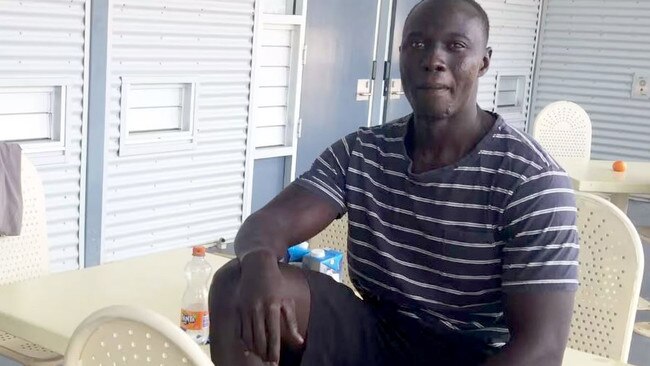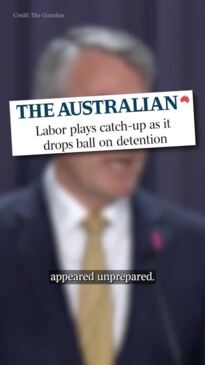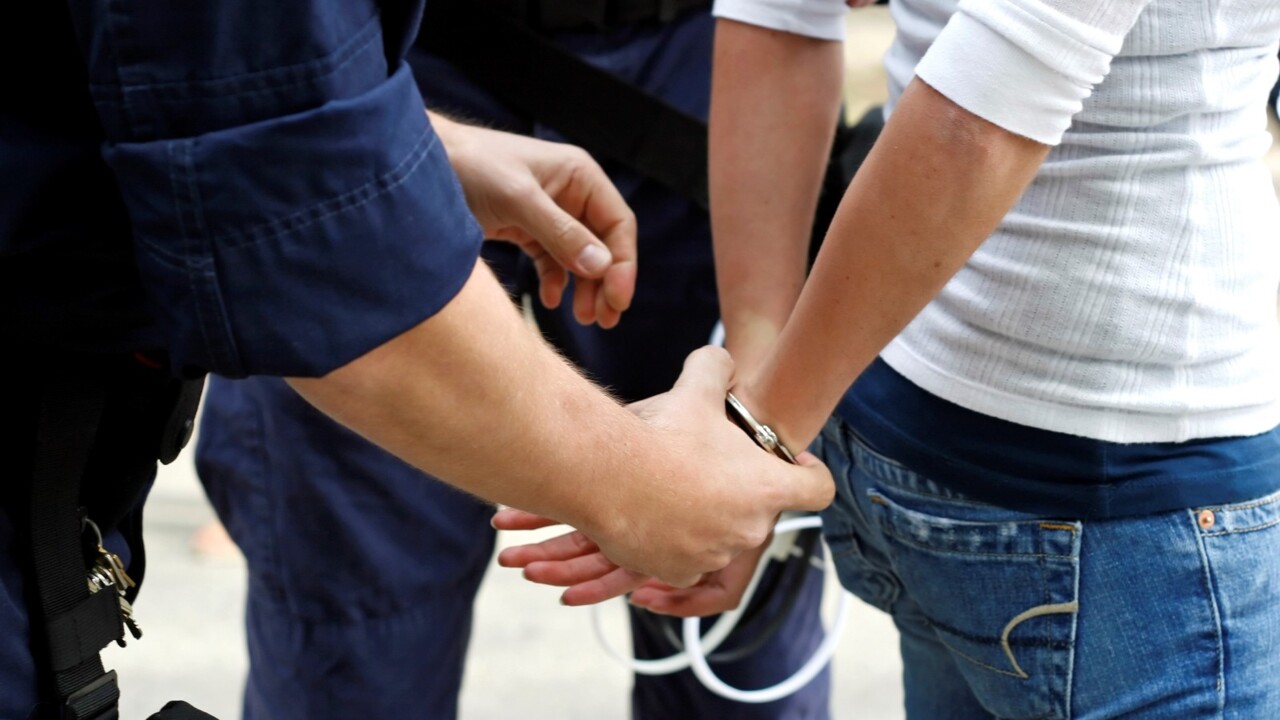Labor asked to explain whether it erred in releasing former child soldier
Labor has been asked to explain how a man with a history of violent offences was released into the community following the High Court’s NZYQ ruling despite an outstanding warrant.

Labor has been asked to explain how a stateless man with a history of violent and drink-driving offences was released into the community following the High Court’s “NZYQ” ruling, despite an outstanding warrant for his return to the prison system.
A 39-year-old man, William Yekrop, who came to Australia at age 16 after growing up during the second Sudanese civil war and being trained as a child soldier, became the fifth former detainee to be arrested after he was picked up by Queensland police at 9am on Thursday.
The arrest escalated the political row over whether Labor needed to release as many detainees as it did following the High Court’s November 8 ruling after Mark Dreyfus on Wednesday refused to apologise to any Australians harmed as a result of the actions of dangerous non-citizens freed from indefinite detention.
Anthony Albanese on Thursday told parliament he was “sorry anytime someone is a victim of a crime wherever it is committed at any time – against any victim”. He also welcomed the passage on Wednesday night of new preventative detention laws aimed at better protecting the community.
Yekrop, who was traumatised after training as a child soldier and witnessing many deaths at a young age in one of history’s most bloody civil wars, was expected to be extradited to NSW on Friday where he is wanted by virtue of an “outstanding revocation of parole warrant in relation to the offence of assault occasioning actual bodily harm”.
The Australian understands the breaching of his parole conditions occurred prior to Yekrop being placed into immigration detention in 2014.

Opposition immigration spokesman Dan Tehan asked Immigration Minister Andrew Giles on the last day of parliament for the year to explain how Yekrop was released given the outstanding warrant. “Can the minister confirm that this person should not have been released into the community?” he asked. But Mr Giles said he could “not comment on individual cases”.
While Australian Border Force revealed that a total of 149 individuals had now been released into the community since the High Court’s NZYQ ruling, the opposition has repeatedly argued that not all them needed to be released.
Speaking on 2GB radio, Peter Dutton said: “The courts did not instruct them to release those people. I think the truth is now dawning upon a lot of Australians.”
Mr Tehan told The Australian that, if the proper checks were not conducted on Yekrop – including a check for any outstanding warrants that may have prevented his release into the community – it was “proof positive that the government jumped the gun” in letting all 149 non-citizens out.
Australian Border Force did not respond to questions or phone calls from The Australian asking if the proper checks were conducted for any outstanding warrants prior to Yekrop’s release.
The Prime Minister told parliament the government had no choice but to release detainees in a similar position to the individual known as NZYQ – rejecting the Coalition argument.
“The government must act in accordance with the law,” he said. “We argued against it, of course, but once the High Court ruled we had no choice but to respond.”
The Australian can also reveal that new warnings have been sounded that federal police are being diverted from crime fighting as a result of the release of detainees following the High Court’s NZYQ ruling. Australian Federal Police Association president Alex Caruana said the AFP was now “using resources that would have normally been used in other areas or for other crime types”.

“If this is going to be a sustained mission, then we need to really consider some ongoing resourcing and funding, more than just the $88m that has already been allocated,” he said.
The federal government last month committed $150m to the Australian Border Force for “compliance, investigations, removal and surveillance” and $88m to the AFP to investigate visa breaches as part of Operation AEGIS – the agencies’ joint response to the High Court ruling.
Mr Caruana said federal police would always uphold the law and were not complaining about the High Court’s decision or the government’s response.
“I don’t think it’s correct to say that they’re frustrated doing this,” he said. “But it is frustrating to be pulled away from other duties.”
Detainees need varying levels of attention, depending on the individual and the crime types, with Mr Caruana saying that some required a “significant amount of observation or a significant amount of resources”.
“It’s not unheard of for that to cost in the vicinity of $200,000 a month to look at that one person, depending on what their status is or their crime type.”
Yekrop, whose family fled the Sudan to an Egyptian refugee camp before coming to Australia in 2003, received no counselling for psychological issues and began self medicating with drugs and alcohol within six months of his arrival. In April 2004, he was convicted of property damage followed by numerous other offences relating to property damage, drink driving, dangerous driving and violence. In 2013, his humanitarian visa was cancelled and, in May 2014, Yekrop was detained following his release from prison.
His arrest follows that of 45-year-old Sudanese-born man, Abdelmoez Mohamed Elawad, for a failure to comply with his curfew and one count of theft for attempting to steal luggage from a sleeping traveller at Melbourne airport; 33-year-old Emran Dad, for allegedly making contact with a juvenile in Melbourne in breach of his obligations as a convicted sex offender; 65-year-old Aliyawar Yawari for allegedly indecently assaulting a woman in a motel in Adelaide and 45-year-old Mohammed Ali Nadari who was found guilty for drug possession in western Sydney.
More Coverage







